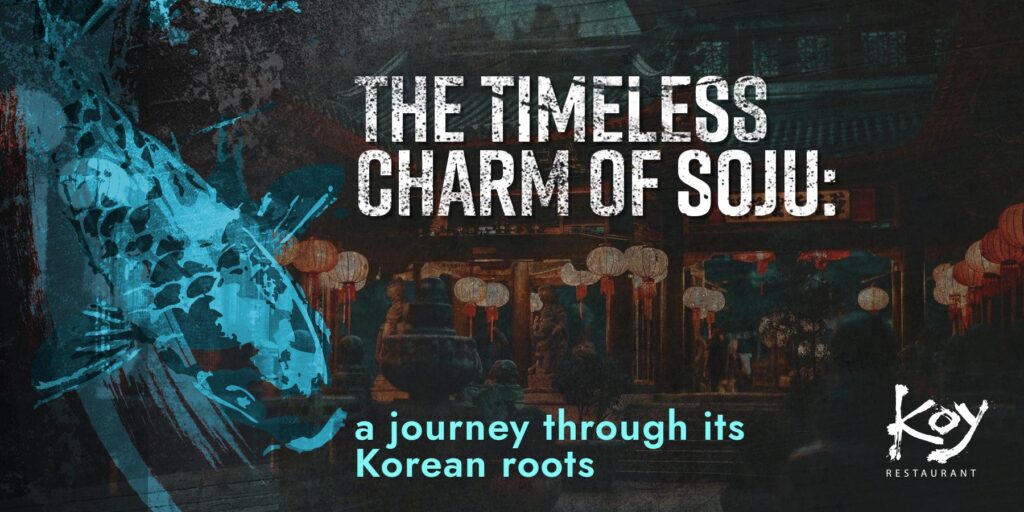
Boston Koren BBQ: Koy Boston is a restaurant dedicated to bringing authentic Korean flavors to the table, notably through the iconic drink Soju. Soju, tracing back to ancient times, has grown from its medicinal origins in the Goguryeo kingdom to becoming a staple during the Joseon Dynasty. Made through traditional methods, Soju’s mildness and cultural importance shine. It symbolizes respect and unity through customs like “Kunbae.” In modern times, Soju has evolved with various flavors and cocktails. Koy Boston embodies Soju’s essence, offering a diverse menu of Soju cocktails, fostering a connection with Korean culture.
Welcome to Koy Boston, a restaurant that brings the authentic flavors and lively vibes of Korea to your table. Before you indulge in our scrumptious dishes and refreshing cocktails, let’s take a moment to explore the history of one of Korea’s most cherished spirits: Soju. From ancient origins to modern trends, Soju has been an integral part of Korean culture, reflecting its customs, values, and social dynamics. Join us on a journey through time as we uncover the fascinating story of Soju and its timeless charm.
The roots of Soju can be traced back to Goguryeo, an ancient kingdom that ruled over parts of northern Korea and southern Manchuria. Distillation techniques were brought to Korea during the Mongol invasions in the 13th century, and Soju was initially used for medicinal purposes. However, it wasn’t until the Joseon Dynasty (1392-1910) that Soju became a staple drink among the general population, with production being regulated by the government.
Soju is traditionally made by fermenting grains such as rice, barley, and wheat, followed by distillation. Korean Soju is typically milder and smoother than other spirits due to the use of traditional distillation methods and the addition of water. The alcohol content of Soju varies from 16% to 45%, with many popular brands having an alcohol content of around 20%.
Soju is not just any drink in Korea; it represents a cultural identity that reflects the country’s social dynamics and values. For instance, the act of pouring Soju into the glass of a senior member of a group is a sign of respect and solidarity, known as “Kunbae.” The group members then drink together, signifying unity and camaraderie. The social hierarchy within Korean society is reflected in these customs, emphasizing the importance of respect for elders and mutual support.
In recent years, Soju has undergone a modern transformation, with various flavors and innovative cocktails becoming increasingly popular. Fruits such as grapefruit, green grape, and pomegranate have been infused into Soju, creating a broad range of options that appeal to both traditionalists and experimentalists alike. Soju-based cocktails have also become a booming trend in Korea and other countries, with mixologists crafting unique and refreshing drinks that showcase the versatility of this beloved spirit.
Koy Boston, we embrace the cultural significance and timeless charm of Soju. Our menu features a wide range of Soju cocktails, from classics like “Somaek” (Soju and beer) to creative inventions like “Yogurt Soju.” We use only traditional distillation methods and high-quality ingredients to ensure that every sip of Soju is authentic and satisfying. As you savor our delicious Korean cuisine and sip on refreshing Soju cocktails, let the rich history and cultural essence of Soju inspire your culinary journey.
Soju is more than just a drink; it’s a symbol of Korean culture and identity. Its ancient origins and cultural significance continue to captivate people worldwide. At Koy Boston, we celebrate the timeless charm of Soju and invite you to experience the vibrant world of Korea through our authentic cuisine and delightful atmosphere.
Reserve your spot now to immerse yourself in the vibrant world of Korean flavors and culture at Koy Boston.